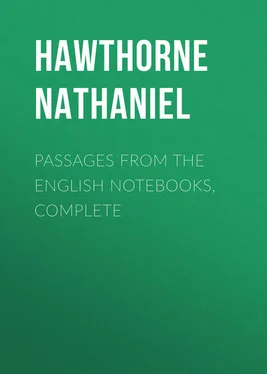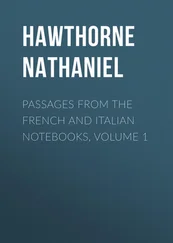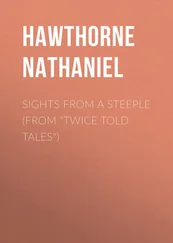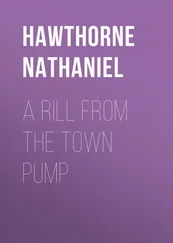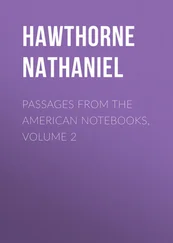Nathaniel Hawthorne - Passages from the English Notebooks, Complete
Здесь есть возможность читать онлайн «Nathaniel Hawthorne - Passages from the English Notebooks, Complete» — ознакомительный отрывок электронной книги совершенно бесплатно, а после прочтения отрывка купить полную версию. В некоторых случаях можно слушать аудио, скачать через торрент в формате fb2 и присутствует краткое содержание. Жанр: История, literature_19, foreign_antique, foreign_prose, Путешествия и география, на английском языке. Описание произведения, (предисловие) а так же отзывы посетителей доступны на портале библиотеки ЛибКат.
- Название:Passages from the English Notebooks, Complete
- Автор:
- Жанр:
- Год:неизвестен
- ISBN:нет данных
- Рейтинг книги:4 / 5. Голосов: 1
-
Избранное:Добавить в избранное
- Отзывы:
-
Ваша оценка:
- 80
- 1
- 2
- 3
- 4
- 5
Passages from the English Notebooks, Complete: краткое содержание, описание и аннотация
Предлагаем к чтению аннотацию, описание, краткое содержание или предисловие (зависит от того, что написал сам автор книги «Passages from the English Notebooks, Complete»). Если вы не нашли необходимую информацию о книге — напишите в комментариях, мы постараемся отыскать её.
Passages from the English Notebooks, Complete — читать онлайн ознакомительный отрывок
Ниже представлен текст книги, разбитый по страницам. Система сохранения места последней прочитанной страницы, позволяет с удобством читать онлайн бесплатно книгу «Passages from the English Notebooks, Complete», без необходимости каждый раз заново искать на чём Вы остановились. Поставьте закладку, и сможете в любой момент перейти на страницу, на которой закончили чтение.
Интервал:
Закладка:
Nathaniel Hawthorne
Passages from the English Notebooks, Complete
VOL. I
PREFACE
It seems justly due to Mr. Hawthorne that the occasion of any portion of his private journals being brought before the Public should be made known, since they were originally designed for his own reference only.
There had been a constant and an urgent demand for a life or memoir of Mr. Hawthorne; yet, from the extreme delicacy and difficulty of the subject, the Editor felt obliged to refuse compliance with this demand. Moreover, Mr. Hawthorne had frequently and emphatically expressed the hope that no one would attempt to write his Biography; and the Editor perceived that it would be impossible for any person, outside of his own domestic circle, to succeed in doing it, on account of his extreme reserve. But it was ungracious to do nothing, and therefore the Editor, believing that Mr. Hawthorne himself was alone capable of satisfactorily answering the affectionate call for some sketch of his life, concluded to publish as much as possible of his private records, and even extracts from his private letters, in order to gratify the desire of his friends and of literary artists to become more intimately acquainted with him. The Editor has been severely blamed and wondered at, in some instances, for allowing many things now published to see the light; but it has been a matter both of conscience and courtesy to withhold nothing that could be given up. Many of the journals were doubtless destroyed; for the earliest date found in his American papers was that of 1835.
The Editor has transcribed the manuscripts just as they were left, without making any new arrangement or altering any sequence, – merely omitting some passages, and being especially careful to preserve whatever could throw any light upon his character. To persons on a quest for characteristics, however, each of his books reveals a great many, and it is believed that with the aid of the Notes (both American and English) the Tales and Romances will make out a very complete and true picture of his individuality; and the Notes are often an open sesame to the artistic works.
Several thickly written pages of observations – fine and accurate etchings – have been omitted, sometimes because too personal with regard to himself or others, and sometimes because they were afterwards absorbed into one or another of the Romances or papers in Our Old Home. It seemed a pity not to give these original cartoons fresh from his mind, because they are so carefully finished at the first stroke. Yet, as Mr. Hawthorne chose his own way of presenting them to the public, it was thought better not to exhibit what he himself withheld. Besides, to any other than a fellow-artist they might seem mere repetitions.
It is very earnestly hoped that these volumes of notes – American, English, and presently Italian – will dispel an often-expressed opinion that Mr. Hawthorne was gloomy and morbid. He had the inevitable pensiveness and gravity of a person who possessed what a friend of his called "the awful power of insight"; but his mood was always cheerful and equal, and his mind peculiarly healthful, and the airy splendor of his wit and humor was the light of his home. He saw too far to be despondent, though his vivid sympathies and shaping imagination often made him sad in behalf of others. He also perceived morbidness, wherever it existed, instantly, as if by the illumination of his own steady cheer; and he had the plastic power of putting himself into each person's situation, and of looking from every point of view, which made his charity most comprehensive. From this cause he necessarily attracted confidences, and became confessor to very many sinning and suffering souls, to whom he gave tender sympathy and help, while resigning judgment to the Omniscient and All-wise.
Throughout his journals it will be seen that Mr. Hawthorne is entertaining, and not asserting, opinions and ideas. He questions, doubts, and reflects with his pen, and, as it were, instructs himself. So that these Note-Books should be read, not as definitive conclusions of his mind, but merely as passing impressions often. Whatever conclusions be arrived at are condensed in the works given to the world by his own hand, in which will never be found a careless word. He was so extremely scrupulous about the value and effect of every expression that the Editor has felt great compunction in allowing a single sentence to be printed. unrevised by himself; but, with the consideration of the above remarks always kept in mind, these volumes are intrusted to the generous interpretation of the reader. If any one must be harshly criticised, it ought certainly to be the Editor.
When a person breaks in, unannounced, upon the morning hours of an artist, and finds him not in full dress, the intruder, and not the surprised artist, is doubtless at fault. S. H.
Dresden, April, 1870.
PASSAGES FROM HAWTHORNE'S ENGLISH NOTE-BOOKS
Liverpool, August 4th, 1853. – A month lacking two days since we left America, – a fortnight and some odd days since we arrived in England. I began my services, such as they are, on Monday last, August 1st, and here I sit in my private room at the Consulate, while the Vice-Consul and clerk are carrying on affairs in the outer office.
The pleasantest incident of the morning is when Mr. Pearce (the Vice-Consul) makes his appearance with the account-books, containing the receipts and expenditures of the preceding day, and deposits on my desk a little rouleau of the Queen's coin, wrapped up in a piece of paper. This morning there were eight sovereigns, four half-crowns, and a shilling, – a pretty fair day's work, though not more than the average ought to be. This forenoon, thus far, I have had two calls, not of business, – one from an American captain and his son, another from Mr. H – B – , whom I met in America, and who has showed us great attention here. He has arranged for us to go to the theatre with some of his family this evening.
Since I have been in Liverpool we have hardly had a day, until yesterday, without more or less of rain, and so cold and shivery that life was miserable. I am not warm enough even now, but am gradually getting acclimated in that respect.
Just now I have been fooled out of half a crown by a young woman, who represents herself as an American and destitute, having come over to see an uncle whom she found dead, and she has no means of getting back again. Her accent is not that of an American, and her appearance is not particularly prepossessing, though not decidedly otherwise. She is decently dressed and modest in deportment, but I do not quite trust her face. She has been separated from her husband, as I understand her, by course of law, has had two children, both now dead. What she wants is to get back to America, and perhaps arrangements may be made with some shipmaster to take her as stewardess or in some subordinate capacity. My judgment, on the whole, is that she is an English woman, married to and separated from an American husband, – of no very decided virtue. I might as well have kept my half-crown, and yet I might have bestowed it worse. She is very decent in manner, cheerful, at least not despondent.
At two o'clock I went over to the Royal Rock Hotel, about fifteen or twenty minutes' steaming from this side of the river. We are going there on Saturday to reside for a while. Returning, I found that, Mr. B., from the American Chamber of Commerce, had called to arrange the time and place of a visit to the Consul from a delegation of that body. Settled for to-morrow at quarter past one at Mr. Blodgett's.
Читать дальшеИнтервал:
Закладка:
Похожие книги на «Passages from the English Notebooks, Complete»
Представляем Вашему вниманию похожие книги на «Passages from the English Notebooks, Complete» списком для выбора. Мы отобрали схожую по названию и смыслу литературу в надежде предоставить читателям больше вариантов отыскать новые, интересные, ещё непрочитанные произведения.
Обсуждение, отзывы о книге «Passages from the English Notebooks, Complete» и просто собственные мнения читателей. Оставьте ваши комментарии, напишите, что Вы думаете о произведении, его смысле или главных героях. Укажите что конкретно понравилось, а что нет, и почему Вы так считаете.
